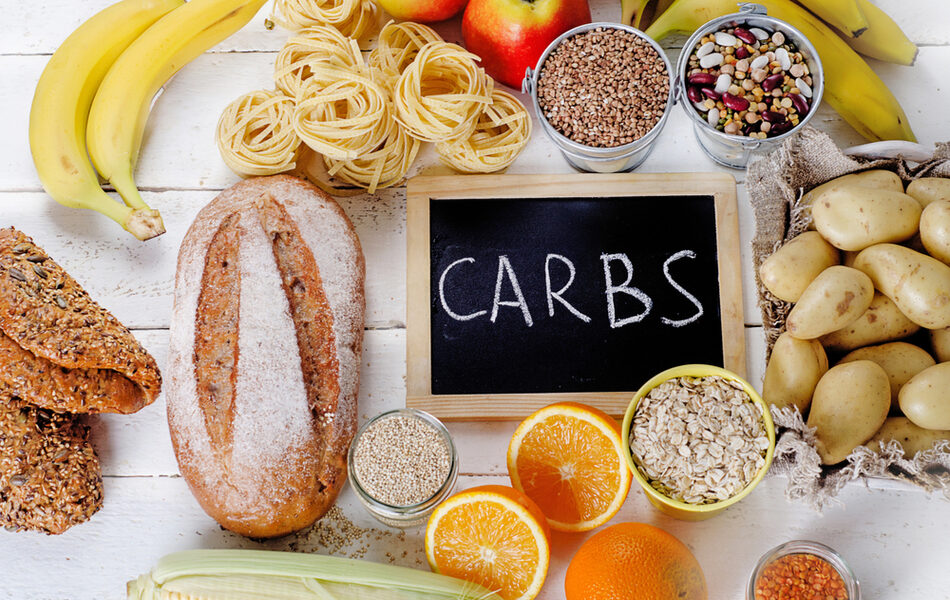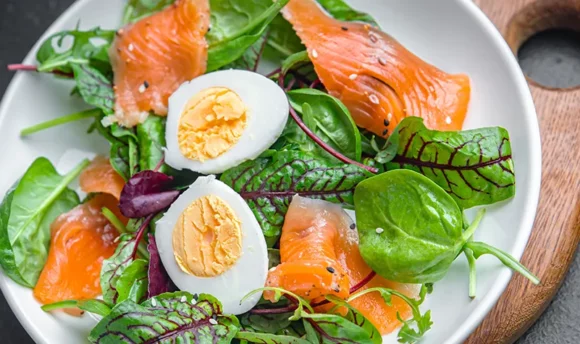Truth Behind Net Carbs vs. Total Carbs: Burning Questions Answered

A ketogenic diet is based on restricting your carbohydrate intake. However, how much do you need to limit your carb intake? Should you calculate your carbs as total carbs or net carbs? What is the relationship between net carbs vs. total carbs, and why does it matter?
This article will explain the difference between net and total carbs and your optimal daily carbohydrate intake.
What Are Net Carbs?
The concept behind net carbs is that not all carbs are equal, and thus counting net carbs is different for various net carbs.
Some carbs, such as simple carbs, are easily digested into the body, whereas complex carbs take time to break down, meaning they are a more reliable energy source.
Net carbs are also known as “active carbs” or “impact carbs.” There are different ways of calculating net carbs.
In processed foods, net carbs refer to the differences between carbohydrates in food minus fiber and sugar alcohols.
In whole foods, net carbs equal total carbs minus fiber.
What Are Total Carbs?
The FDA recognizes total carbs as the sum of all carbs in your foods.
They include all starches, dietary fiber, and sugar alcohols.
How many net carbs are allowed on keto?
Most keto diet guidelines recommend a daily carb limit of 20–30 grams of net carbohydrates to maintain nutritional ketosis.
An active person who frequently exercises will need to consume slightly more carbs to stay in ketosis.
Is fiber a carb?
Fiber is generally a carb that the body cannot digest.
It is mainly found in plants, and it passes through the body undigested without absorption in the body. Unlike other digestible carbs, fiber doesn’t impact blood sugar.
Although fibers pass through the body undigested, their role in the body is a bit complex. They help in digestion, help the body regulate the use of sugars, and keep blood sugar and hunger in check.
Dietary Fiber Carbs on Keto
The body cannot digest most types of dietary fiber. To count net carbs in high fiber foods, you need to subtract the fiber from the total carbs that food manufacturers list on the nutrition label.
High-fiber fruits and other fiber-rich foods are also crucial in weight loss management as they help people feel full longer and adhere to their diets.
There are two types of dietary fiber: soluble and insoluble.
Soluble fiber like fiber-rich inulin dissolves in water to form a gel-like substance which bacteria later break down in the intestines. Good sources of this fiber include leafy greens, oats, beans, and nuts.
On the other hand, insoluble fiber doesn’t dissolve and passes through the gut intact. They help with digestion and prevent constipation. Sources include whole grains, fruits, and nuts.
Should I Count Net Carbs or Total Carbs?
Tracking the net carb count is the most effective method for people on a low-carb diet looking to lose weight. When it comes to managing a disease like diabetes or cancer, tracking the total carb count might be more suitable. Net carbs assume that fiber and sugar alcohols have little to no impact on blood sugar.
When tracking total carb intake, ensure you get enough micronutrients in your diet as low-carb diets with 20–30 grams of total carbs are often deficient in micronutrients.
How to Count Net Carbs?
Calculating net carbs depends on the type of carbs in a particular food. To calculate only net carbs in whole foods, you need to compute the difference between total carbs and fiber.
However, to calculate net carbs in packaged foods, you need more information to count carbs.
First, you need to subtract the fiber from the total carbs. However, if a fiber such as an isomaltooligosaccharide (IMO) is among the ingredients, deduct half the amount of carbs.
Generally, half of sugar alcohol carbs can be subtracted from the nutritional label when counting net carbs. However, you can completely deduct certain sugar alcohols like erythritol from total carbs. To maintain ketosis, you need to maintain a daily net carb intake of 20–30 grams of net carbs.
How Do Sugar Alcohols Affect Net Carbs?
Due to its comparatively higher glycemic index, sugar intake is limited on keto since it will raise blood sugar levels. Sugar alcohols, on the contrary, have a lesser effect on blood sugar, and we find them in keto-friendly products.
Most sugar alcohols have a low glycemic index, meaning they do not raise your blood sugar levels.
However, due to the variation of glycemic indexes, certain sugar alcohols are better for keto than others. In contrast to regular sugars, the body cannot fully break down sugar alcohols; thus, sugar alcohols have less significance on blood sugar levels.
Since the net carb count in sugar alcohols is low, sugar alcohols are commonly found in keto-friendly products. The next time you prepare coffee or keto-friendly protein bars, you can use sugar alcohols like erythritol as sweeteners.
A Word From Our RD
In general, net carbs are the total number of carbs in your food minus the carbs the body will not absorb. It is important to count carbs in your food as excess simple carbohydrates can cause inflammation, spike blood sugar, disrupt gut bacteria and food hormones, and trigger food cravings.
It is best to stick to low-carbs on ketogenic diets and eat more healthy fat for healthy weight loss on ketosis.
Total carbs are the total carbohydrate count from all sources. Whether to follow total or net carbs on a ketogenic diet depends on your weight loss goals. For weight loss or preventative health measures, tracking net carbs is ideal, but tracking total carbs is good for medically therapeutic reasons.
It’s always best to consult with your dietitian before starting a new diet.
Conclusion
The idea behind total carbs and net carbs can be confusing, but understanding it helps you achieve your health and dietary goals. It is important to monitor ingredients in your food labels for the best dietary results.
For medical reasons, most dietitians advise focusing on total carbs but recommend focusing on net carbs for weight loss reasons. Low-carb diets such as non-starchy veggies, olive oil, healthy fats, and high-fiber fruits coupled with exercise are the most proven way for rapid weight loss and best results on keto.

















































 Select your language:
Select your language: 








